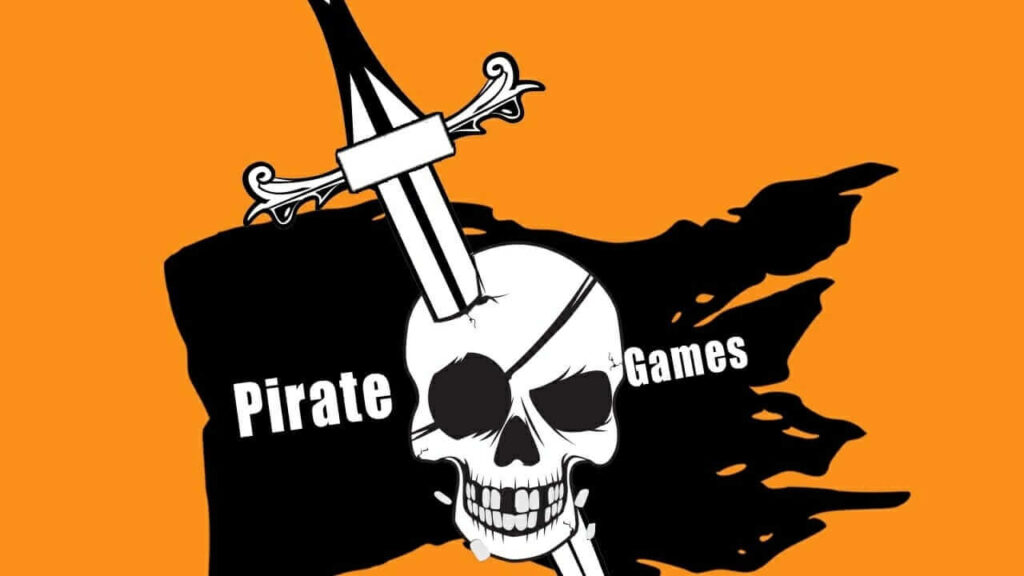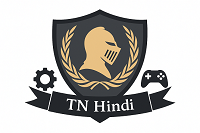How Actually Game Piracy Work? Game Piracy Fully Explained
Game Piracy Explained
Contents
- 1 Game Piracy Explained
- 2 Game Piracy Behind The Community
- 3 An Unstable Crack Release By Steampunks
- 4 Second Category Of Game Piracy Group
- 5 The Last And Optional Game Pirate Category
- 6 🧠 1. What Is Game Piracy?
- 7 🔧 2. How Game Piracy Works – Step by Step
- 8 🧱 3. Common DRM Used by Game Companies
- 9 ❗ 4. Why Game Piracy Is Risky (and Often Harmful)
- 10 🎯 5. Why People Pirate Games (and Why It Still Happens)
- 11 🛡️ 6. How Publishers Fight Piracy
- 12 ✅ 7. Legal Alternatives to Piracy
- 13 🧠 Summary
Game Piracy is a contentious issue in the PC community. With some in the industry even considering it a floor inherent in the platform. To that end, they opted not to port their titles to the PC. And if they did they stacked DRM upon DRM in a misguided effort to minimize piracy. On that note, we’ve analyzed the two most restrictive of these. DENUVO and UWP.
This Explanation hopes to give you a better understanding of how piracy works by exploring the mechanics of its ecosystem and the groups that make it possible. But if you know someone curious about how piracy works please share this post with them.
Video game piracy involves modification of the DRM files. The components check the game’s legitimacy and stop illicit copies from working. This is what anti-tamper software like DENUVO is supposed to prevent. These protections can also break with file modification, known as cracks. Pirate groups are classified by the role they play in the production and distribution of these cracks.

Game Piracy Behind The Community
The community behind game piracy is known as The WAREZ SCENE. An underground group of people specializes in the distribution of copyright materials. Groups like CODEX, STEAMPUNKS, CONSPIRACY, RELOADED, and FAIRLIGHT. These groups are known for their consistent, reliable, and secure cracks.
Scene groups are restricted to use game crack methods in order to run games in all PC configurations. If a group uses different methods to crack, the crack release nuked. It means that other scene groups put a flag to the crack as inappropriate. Skid Rows modify the .exe from Deus EX: breach to crack the Deus ex mankind divided. Instead of an actual crack for the game’s DENUVO’s protection.
These restrictions also forbid scene groups from making multiplayer available to pirates. Even though after following the proper procedure, still the cracks are unstable on a certain system. The nuked release either by the cracker or the scene groups is often following the proper crack to fixed the issues.
An Unstable Crack Release By Steampunks
Conspiracy released a proper crack for Ghost Recon Wildland. And in doing so nuked steampunks’ earlier crack for instability. Steampunks uses different methods, which are forbidden by scene rules. And things turn out a nuked and unstable release of the game. Conspiracy chides Steampunks for using a forbidden method by scene rules.
Blaming this for steampunk’s unstable crack. As to how they release their crack they upload it onto underground top sites. From which it is leaked onto private, and public trackers like the Pirate Bay.
The upload contains the crack files bundled with the game installer and an ISO file. This ISO file can be burned onto a disk extracted like a zip archive or mounted on a virtual drive then install the game and copy the crack over to the game directory. Thanks to the simplicity and reliability of this process.
Undoubtedly scene groups tend to be secretive and not allow speak to the public. They communicate through the instruction bundle along with their crack. They using decorative ASCII art, A style that has since been adopted by groups outside the scene. Scene group does not host their website not try to generate any profit
Second Category Of Game Piracy Group
The second Category of Game Piracy groups called peer-to-peer. Broadly speaking peer-to-peer is an umbrella term for all non-scene groups. With 3DM and REVOLT being the two most notorious.
Peer-to-peer groups play a variety of roles from distributing scene cracks to cracking games themselves. In the latter case, they are not bound by scene standards and are thus unrestricted in the methods they can use to break DRMs.
Case-in-point revolts voksi used a kernel driver to bypass DENUVO, a method off-limits to the scene. The wider array of techniques available to peer-to-peer.
Though the quality of peer-to-peer cracks is often questionable and nowhere near the scene standards. Case in point the first cracks for DENUVO came from peer to peer group 3DM. Those said cracks contain bugs, and unstable.
Another benefit of the lack of restrictions is that peer-to-peer groups are free to take a crack at pirating multiplayer, which was successfully achieved by NT authorities FIVEM for Grand Theft Auto V. ALTER IW NET and FOUR DELTA ONE for modern warfare 2 and REVOLT Steamworks fixes for a plethora of Steam titles.
Peer-to-peer groups are not as reclusive as a scene. 3DM is another example as its members maintain profiles on social networks and even a blog to keep pirates updated about their activities.
Unlike the scene, peer-to-peer crackers have occasionally opened avenues to receive donations from the pirate community. Overall peer-to-peer groups have carved out their own niche. Offering early but unreliable cracks for impatient pirates. While the scene meticulously scoped their cracks to perfection for a proper release.
The Last And Optional Game Pirate Category
let’s move on to repackers, the last and perhaps the only optional category in our list. Unlike the two previous groups, Repackers don’t crack their games themselves. But rather they compress the scene and peer-to-peer releases down to smaller sizes.
These compressed files are then bundled with customized installers to be distributed in what they call repacks. Repacks also separate language files. So only the language needed can be installed further saving on drive space and download time.
This service is preferred by pirates with limited storage space and slow or capped internet. To be fair there is a trade-off here. Free packs sacrifice faster installation for faster download and smaller file sizes.
Repack is actively attempting to make a profit out of this. Indeed with quite a few donation requests and have websites loaded with ads and cryptocurrency mining scripts. Repacks are also carrying the greatest risk. As some repacks have been reported to contain malware.
Case-in-point repacks a SATA infected his Just Cause 3 and Rise of the Tomb Raider repacks with a Bitcoin miner. While core packs releases carried a whole host of worms viruses and other malware. Which they later had to admit and apologize for.
Of course, the safest way to play games is to buy them. Unless the game in question uses SecuROM or Starforce.
Game piracy is the act of acquiring, distributing, or using video games without legal authorization or payment. Here’s a full breakdown of how it works, how it’s done, and why it’s a big deal:
🧠 1. What Is Game Piracy?
At its core, game piracy involves bypassing or cracking a game’s copy protection (also known as DRM – Digital Rights Management) to:
- Play it without buying it.
- Distribute it freely or sell it illegally.
- Avoid online checks, logins, or subscriptions.
Piracy can involve physical copying (discs) or digital cracking (downloadable games).
🔧 2. How Game Piracy Works – Step by Step
🛠️ Step 1: Copying or Extracting Game Files
- Pirates obtain an official game (via disc, digital store, or insider leak).
- They copy the files and look for DRM components (like Denuvo, Steam, Origin, etc.).
🔓 Step 2: Cracking the DRM
- The key step is reverse engineering the DRM to bypass activation, license checks, or server requirements.
- Hackers use tools like debuggers, hex editors, and disassemblers to modify the game’s binary (EXE or DLL).
- A “crack” is produced—a modified version of the executable that tricks the game into thinking it’s legally owned.
🧪 Step 3: Testing and Repackaging
- Once cracked, pirates:
- Test the game to make sure it runs without issues.
- Compress and split large files for easier downloading (these are “repacked” or “highly compressed” versions).
📤 Step 4: Distribution
- The final cracked version is uploaded to:
- Torrent sites (like 1337x, FitGirl, IGG, Skidrow, Dodi, etc.).
- Direct download sites, file-sharing platforms, or pirated forums.
🧱 3. Common DRM Used by Game Companies
| DRM Type | Description |
|---|---|
| Denuvo | Heavy anti-tamper system; often tough to crack. |
| Steam DRM | Built-in verification through Steam client. |
| Ubisoft Connect | Online check-ins + activation keys. |
| Origin/EA | Tied to EA account and verification. |
❗ 4. Why Game Piracy Is Risky (and Often Harmful)
🚫 Legal Risks
- Downloading pirated games is illegal in most countries (can lead to fines or prosecution).
- Distributors face hefty copyright lawsuits.
💀 Malware & Viruses
- Cracks often contain Trojan horses, spyware, or ransomware.
- You may think you downloaded a game—but also installed a keylogger or crypto miner.
🔧 Broken or Incomplete Games
- Many pirated games:
- Lack updates, DLCs, online modes, or mod support.
- Crash often or are buggy due to modified files.
🚫 No Online or Cloud Features
- Most pirates can’t play multiplayer, co-op, or use game saves across devices.
🎯 5. Why People Pirate Games (and Why It Still Happens)
| Reason | Explanation |
|---|---|
| 💸 High prices | AAA games cost $60–$70+; unaffordable to some. |
| 🌍 Regional availability | Some games not sold in certain countries. |
| 🚫 Lack of refunds or demos | No way to test the game before buying. |
| 📶 Bad or limited internet | Hard to connect to online DRM every time. |
| 🕹️ Curiosity or nostalgia | Old or delisted games no longer sold. |
🛡️ 6. How Publishers Fight Piracy
- DRM (like Denuvo) – increasingly complex protections.
- Always-online requirements – even single-player games.
- Frequent updates – break cracked versions constantly.
- Game Pass / subscriptions – make legal play affordable.
- Lawsuits / takedown notices – target torrent sites and crackers.
✅ 7. Legal Alternatives to Piracy
| Option | Benefits |
|---|---|
| 🟩 Steam/GOG sales | Games often 50–90% off during sales. |
| 🎮 Game Pass / PS+ | Access to hundreds of games for cheap. |
| 🧪 Free demos/trials | Try before buying. |
| 🛍️ Indie bundles | Get multiple games for under $5. |
🧠 Summary
Game piracy is:
- A technically sophisticated process of removing copy protection.
- Illegal and often dangerous due to malware.
- Common in areas with low income or weak access to legal games.
- Fought by developers through tech, pricing, and legal enforcement.
But in 2025, legal access is better than ever—Game Pass, Steam sales, and cloud gaming make piracy increasingly obsolete.
If you’re curious about how specific crack groups (like Skidrow, FitGirl, or Razor1911) operate—or want a visual flowchart of how DRM is cracked—I can provide that too.
